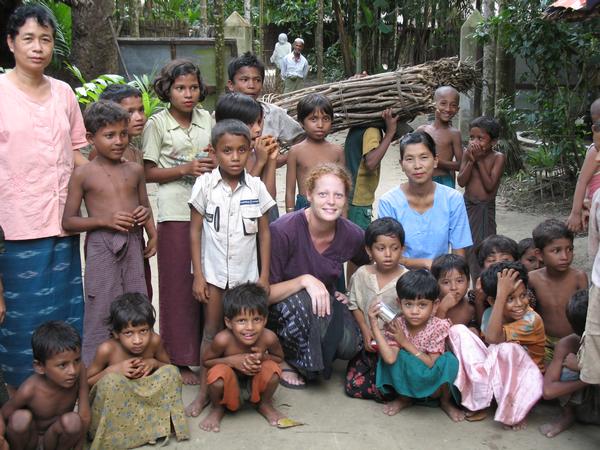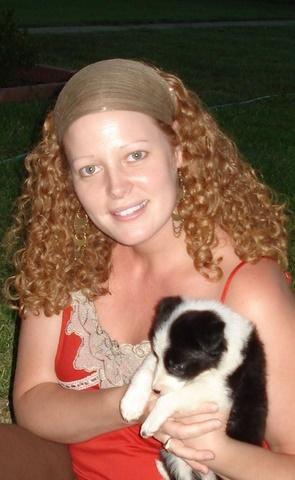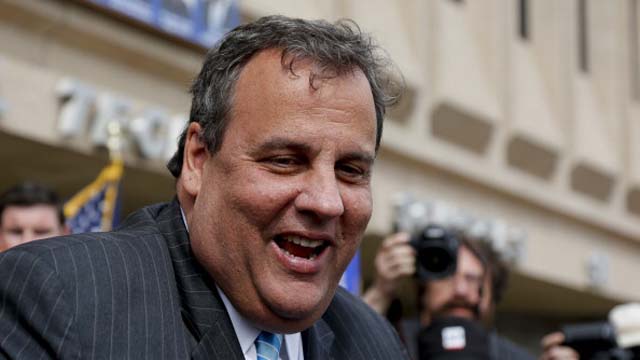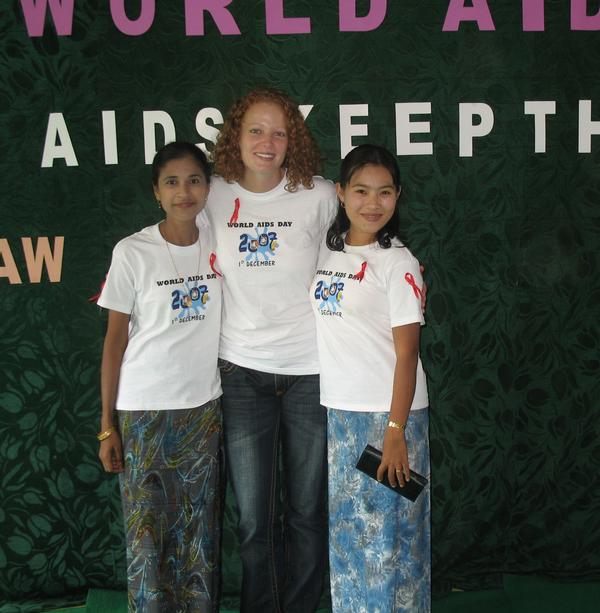
(Myspace)
Kaci Hickox, a nurse returning from West Africa after treating Ebola patients, is threatening to sue New Jersey for being forcefully quarantined under the state’s new 21-day mandate.
Here’s what you need to know:
1. New Jersey Has Decided to Release Hickox
After being held in quarantine for three days, the New Jersey Department of Health will be releasing Hickox, stating, “Since testing negative for Ebola on early Saturday morning, the patient being monitored in isolation at University Hospital in Newark has thankfully been symptom free for the last 24 hours. As a result, and after being evaluated in coordination with the CDC and the treating clinicians at University Hospital, the patient is being discharged.”
Hickox will be flown home to Maine on a charter flight.
Hickox told ABC News’ Chief Health and Medical Editor Dr. Richard Besser, “I’m so thankful for the immense attention and support I’ve received. I just hope this nightmare of mine and the fight that I’ve undertaken is not in vain!”
Hickox’s release follows her threat to sue New Jersey Governor Chris Christie and the state, hiring civil rights attorney Norman Siegel. In the video above, Christie defended his actions, saying, “I’m not going to step away for a minute from protecting the people of my state and our region. So I understand that she didn’t want to be there. She made that very clear from the beginning, but my obligation is to all the people of New Jersey and we’re just going to continue to do that. So the critics are the critics no matter what you do there will be critics and you don’t worry that, you worry about doing what’s right for the people you represent and that’s what we’ve done.”
Hickox had been forcibly quarantined, the first person subject to New Jersey’s 21-day mandatory quarantine for health care workers returning from helping Ebola patients in West Africa.
2. She Was Held Without Displaying Ebola Symptoms

(Myspace)
Despite showing no symptoms of Ebola, Hickox was still held under quarantine after showing a fever of 101 at the airport from a forehead scanner. However, when her temperature was taken later, it was 98 degrees and she still showed no symptoms of illness. In an essay to the Dallas News, she stated the reason she showed she had a fever was because she was flushed and upset, not sick.
In her essay she writes:
I told him that I have traveled from Sierra Leone, and he replied, a little less enthusiastically: “No problem. They are probably going to ask you a few questions.”
He put on gloves and a mask and called someone. Then he escorted me to the quarantine office a few yards away. I was told to sit down. Everyone that came out of the offices was hurrying from room to room in white protective coveralls, gloves, masks, and a disposable face shield.
One after another, people asked me questions. Some introduced themselves, some didn’t. One man who must have been an immigration officer because he was wearing a weapon belt that I could see protruding from his white coveralls barked questions at me as if I was a criminal.
Two other officials asked about my work in Sierra Leone. One of them was from the Centers for Disease Control and Prevention. They scribbled notes in the margins of their form, a form that appeared to be inadequate for the many details they are collecting.
I was tired, hungry and confused, but I tried to remain calm. My temperature was taken using a forehead scanner and it read a temperature of 98. I was feeling physically healthy but emotionally exhausted.
She continued:
I had spent a month watching children die, alone. I had witnessed human tragedy unfold before my eyes. I had tried to help when much of the world has looked on and done nothing.
At the hospital, I was escorted to a tent that sat outside of the building. The infectious disease and emergency department doctors took my temperature and other vitals and looked puzzled. “Your temperature is 98.6,” they said. “You don’t have a fever but we were told you had a fever.”
After my temperature was recorded as 98.6 on the oral thermometer, the doctor decided to see what the forehead scanner records. It read 101. The doctor felts my neck and looked at the temperature again. “There’s no way you have a fever,” he said. “Your face is just flushed.”
My blood was taken and tested for Ebola. It came back negative.
3. Hickox Called Her Quarantine Inhumane
After a seven-hour wait at the airport, the nurse was brought to the University Hospital in Newark and eventually placed in an isolation tent. She was tested for Ebola twice, with both results negative, and asked repeatedly when she could return home, with no answer until today.
Hickox said to CNN, “To put me in prison is just inhumane.”
In her interview with CNN, she explained how she did not initially have a shower, flushable toilet, television or reading material in her isolation tent, even directly blaming Governor Christie for overstating she was “obviously ill,” when she showed no symptoms.
4. New Jersey Enacted Mandatory Quarantine for Anyone Returning From West Africa

(Getty)
New Jersey is one of three states that have enacted mandatory quarantines, including New York and Illinois.
In New York, Governor Andrew M. Cuomo said medical workers who returned from West Africa and were quarantined, but did not show symptoms, would be allowed to remain home and receive compensation for lost income.
Experts, however, believe these quarantines will dissuade help to West African nations plagued with Ebola and risk the loss of volunteers traveling to those African countries in need of medical help.
5. She Works for Doctors Without Borders

(Myspace)
According to Hickox’s mother, Karen Hickox, her daughter has traveled to several countries in Africa for Doctors Without Borders and graduated with a master’s in nursing and public health from John Hopkins. She was even a former employee of the CDC.
In a phone call with her mother, Karen stated that her daughter “cried so hard she could hardly talk at first. That’s not in her nature … she’s not one that cries a lot. So that was a little hard as mother.”
A classmate of hers from John Hopkins, Dr. Nora Rowley, said, “She’s not a loudmouth activist, but she understands the contagiousness of the virus, and now she has to come back and be subjected to a policy that’s not based on anything other than fear.”